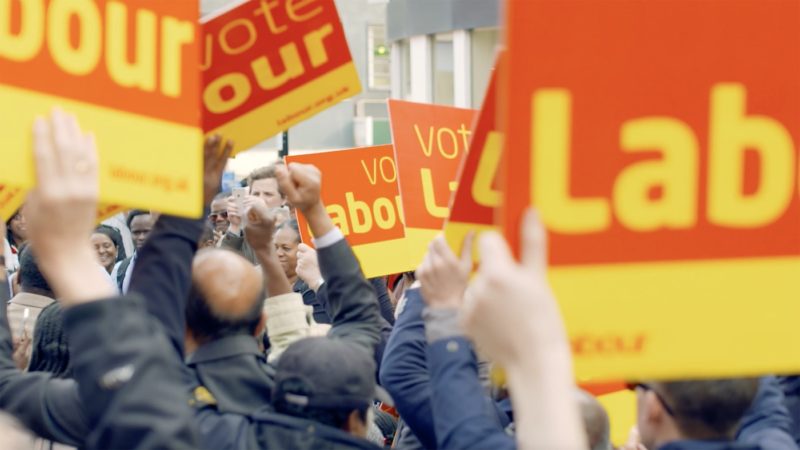
Too often, unpleasant, discriminatory, uncomradely or worse behaviour goes unchecked in the Labour Party. Practices that would be wholly unacceptable in most workplaces appear to have taken hold. Besides being wrong in principle, this is a problem for a party that hopes to be one of government. If we cannot put our own house in order, how can we expect voters to trust us with running the country?
Labour has seen serious failures in relation to antisemitism, anti-black racism, sexual harassment and many other areas. A key problem throughout has been party culture. Culture can be defined in many different ways, but a simple and compelling one is that it defines ‘how you do things’. It is this that Labour must change if it is to live up to its ideals. Here are seven ideas for doing just that.
1. Setting the right tone from the top.
The approach of senior leaders is key to an organisation’s culture. Keir Starmer has already shown that he is conscious of this point, as he has talked about the importance of a leader modelling good behaviour. Yet this cannot be left to Starmer alone. The right values must be demonstrated by all senior party officers and all in the shadow cabinet.
2. Encouraging openness about what’s gone wrong.
If we want to fix the problems with Labour’s culture, we need to understand what has gone wrong so far. That requires openness, so that people feel comfortable sharing their concerns, which means we can have an honest discussion. This was recognised by Starmer during the leadership election when he said that Labour should not “circle the wagons” in relation to accusations of antisemitism but instead “throw open the books”.
3. Promoting diversity and inclusion.
Labour clearly has major problems from a diversity and inclusion perspective – as the difficulties in handling antisemitism, racism and sexism in the party has exposed. Efforts to improve Labour’s culture need to focus on this aspect of internal party dynamics. This should ensure that the voices of discriminated groups are listened to and that they have effective representation in party structures as, for example, has not been the case with BAME Labour.
4. Setting out clear expectations in an ethical code.
It is difficult to change the culture of an institution if you are not clear about what you want to change. Labour must clearly articulate its expectations for the culture and behaviour of members. The party currently has a “member’s pledge” to which new members must agree. Tellingly, it sets a low bar.
The pledge only requires members to act within the spirit and rules of the party and to stand against “all forms of abuse”. What about being welcoming to others? Calling out bad behaviour, not discriminating, and treating others with respect? Members surely expect a higher standard – we should be drawing up a code of ethics that reflects Labour values.
5. Rewarding good behaviour. Punishing bad behaviour.
In 1975, Steven Kerr of Ohio State University wrote a seminal paper titled ‘On the folly of rewarding A, while hoping for B’. His central point was simple: what gets rewarded is what gets done. Labour needs to make sure it has an approach that rewards good behaviour and punishes bad behaviour.
There are a variety of ways of doing this, from staff appraisal processes to disciplinary procedures, as well as more subtle levers such as praise, respect and status. Important to this is taking a holistic approach – as suggested in ‘A Plan For Decency in the Labour Party’ – to help build a culture of decency throughout the organisation.
6. Embedding good practice in the party.
Labour’s ideals for how it operates need to be embedded in the day-to-day practices of both the party headquarters and local parties. A key part of Labour’s political education strategy should therefore centre on promoting a democratic, participatory, pluralist and inclusive culture.
This should range from measures such as ensuring that these values are assessed as part of staff hiring processes to encouraging local parties to discuss how they can operate in a way that is in keeping with Labour’s values. We should also switch to the use of single transferable vote (STV) for national executive committee elections. This would help instil a more inclusive culture and get rid of the ‘winner takes all’ effect that entrenches divides.
7. Measuring and monitoring.
Labour needs to measure and monitor its efforts to build a more inclusive, democratic culture to learn lessons and improve our approach. This could include surveys and focus groups of members, as well as analysis of complaints, potentially carried out by an independent body and shared publicly.
Making such changes will require leadership and determination from Keir Starmer and deputy leader Angela Rayner. Thankfully, both seem committed to bringing about the reforms needed, and Starmer’s comments so far suggest that he understands these issues – probably helped by his time as Director of Public Prosecutions.
Improving Labour’s culture will need all groups and factions within the party to engage in good faith to put things right. The party will need to make sure, both in terms of party staff but also external advisers, that it has people with the necessary expertise to implement the changes that are needed. We must unite around efforts to improve Labour’s culture – these reforms will allow us to put our values into practice.




More from LabourList
Turning the page? Labour’s recovery in the polls show a path to 2029 victory
Restoration announce recommendations for NEC candidates
‘Factionalism at the top is weakening Labour – and handing a gift to Reform’